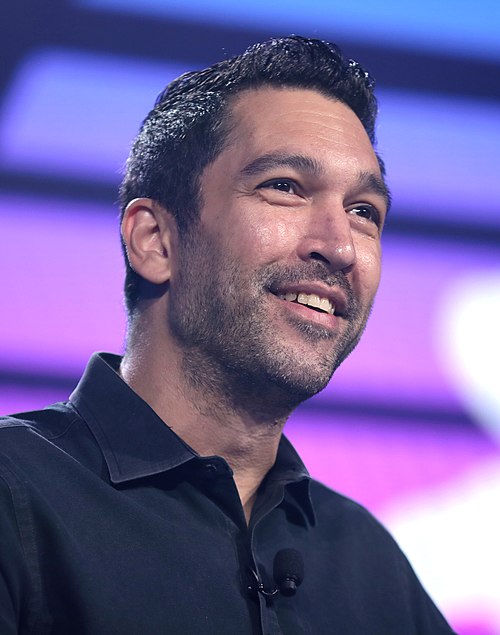By Sam Stenge
There’s a strange, almost perverse pleasure in watching Dave Smith talk about Israel. Not because his arguments hold up—they don’t—but because the performance is equal parts tension, spectacle, and moral theater. It’s like watching a movie villain deliver shaky convictions with unwavering confidence, waiting to see if anyone on the panel will finally pierce through the bluster.
If you’ve followed the online discourse around the Israel–Hamas war, you’ve likely encountered Smith. Before October 7th, he was a niche libertarian comedian and podcaster. Since then, he’s surged into mainstream attention, carving out a prominent space by taking aggressively anti-Israel positions. He’s not operating on the margins—he’s a regular guest on megaplatforms hosted by Joe Rogan, Tucker Carlson, and Piers Morgan, where he delivers his narrative with poise and conviction, but not evidence.
Smith doesn’t argue—he performs. His tone is calm, controlled, and smug. He distills one of the world’s most complex geopolitical conflicts into emotionally charged soundbites designed to feel irrefutable. And that’s exactly what makes him dangerous.
Take his most recycled analogy: Smith compares Israel’s response to Hamas to a police officer chasing a manslaughter suspect who’s hiding in a building full of innocent civilians. To attack, Smith argues, would be immoral—collateral damage can’t be justified. His implication? Israel is that reckless officer, willing to kill innocents in pursuit of a suspect.
It’s an analogy that collapses under even modest scrutiny. A more honest version would acknowledge that the suspect (Hamas) is actively shooting from within the building—still killing, still threatening. In such a case, what do you do? Which lives do you prioritize?
More importantly, if the police behaved like the IDF, they wouldn’t storm in unannounced. They’d call every resident in the building. They’d send texts. They’d drop leaflets. They’d warn civilians to evacuate. And only then would they act.
Smith’s narratives routinely erase this kind of nuance. He asserts that Palestinians have suffered under Israeli rule since 1967 without acknowledging decades of peace offers, Israeli withdrawals, waves of terrorism, or economic cooperation that improved living standards in parts of the West Bank. He shrugs off facts that complicate his narrative—because complication ruins the performance.
And it’s not just his metaphors that mislead—it’s his whole moral framing. Smith casts himself as a moral purist, a principled defender of human life. But if that were true, wouldn’t it trouble him that his talking points are echoed by white supremacists, neo-Nazis, Islamist extremists, and far-left anti-Zionists? These groups champion the same conspiracy theories: that Israel controls U.S. foreign policy, that Jews are the problem in the Middle East, that Zionism is a global evil.
If Smith claims to stand for morality, why is he unbothered that the world’s worst actors cheer him on?
Then there’s the way his Jewish identity is deployed—always emphasized by interviewers and co-panelists. “Even Jews oppose Israel!” It’s grotesque. Smith becomes a human shield, a rhetorical fig leaf used to launder ancient blood libels in the language of modern activism: apartheid, colonialism, genocide.
This isn’t just bad analysis. It’s bad faith dressed up in certainty. Smith’s post–October 7th rise proves how easily confidence can pass for coherence. He’s never been to Israel. He doesn’t understand its politics, history, or the existential threats it faces. Yet he speaks as if decades of war, trauma, and peacemaking can be reduced to one simple verdict: Israel is the villain.
What drives this moral theater—narcissism? opportunism? internal conflict?—is hard to say. But one thing is clear: Smith isn’t asking honest questions. He isn’t offering solutions. He’s playing a part. And in today’s media ecosystem, where outrage and certainty pay better than truth, it’s a part that rewards him handsomely.
We may love to hate him—but we must not mistake sophistry for substance. The cost of doing so is far too high.







